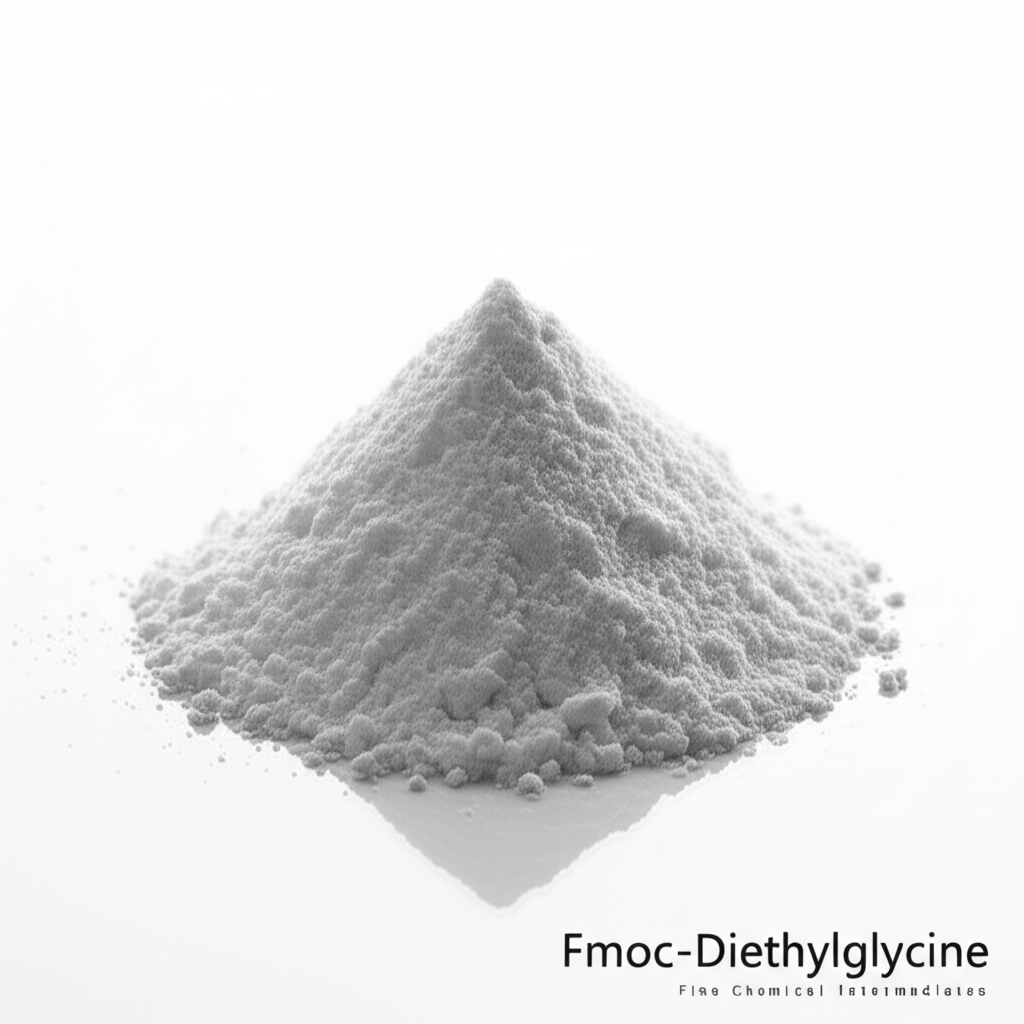Fmoc-Diethylglycine: A Key Building Block for Advanced Peptide Synthesis and Drug Discovery
Explore the critical role of Fmoc-Diethylglycine in modern peptide synthesis and its impact on accelerating drug discovery and development. Discover its advantages and applications.
Get a Quote & SampleProduct Core Value

Fmoc-Diethylglycine
As a premier supplier in China, we offer Fmoc-Diethylglycine, a highly valuable non-natural amino acid derivative vital for advanced peptide synthesis. Its unique structure and the presence of the Fmoc protecting group enable precise control over peptide chain elongation, ensuring high yields and purity. This makes it an indispensable component for researchers and manufacturers in the pharmaceutical and biotechnology sectors. Our commitment as a reliable manufacturer in China ensures consistent quality and availability for your critical projects.
- Leverage Fmoc-Diethylglycine for superior solid phase peptide synthesis (SPPS), minimizing unwanted side reactions and maximizing product yield.
- Utilize this advanced amino acid derivative in drug development, facilitating the creation of novel peptide-based therapeutics with enhanced efficacy.
- Incorporate Fmoc-Diethylglycine in bioconjugation processes, essential for developing advanced biosensors and targeted drug delivery systems.
- Explore the application of Fmoc-Diethylglycine in neuroscience research, aiding the study of neuropeptides and their functions.
Advantages of Using Fmoc-Diethylglycine
Mild Synthesis Conditions
Fmoc-Diethylglycine facilitates peptide synthesis under milder reaction conditions compared to older methods. This compatibility is crucial for protecting sensitive amino acid residues and ensuring the integrity of complex peptide structures, a key aspect when considering peptide synthesis reagents.
Efficient Fmoc Deprotection
The Fmoc group on Fmoc-Diethylglycine is readily removed by weak bases, such as piperidine. This easy deprotection is critical for the stepwise elongation of peptide chains in solid phase peptide synthesis, contributing to efficient workflows and high purity outputs.
Enhanced Purity and Yield
By employing Fmoc-Diethylglycine, researchers can achieve higher peptide purity and yields. This is paramount for applications in drug development, where consistent quality is non-negotiable, making it a valuable component in drug development building blocks.
Key Applications
Peptide Synthesis
Fmoc-Diethylglycine is a cornerstone in modern peptide synthesis, particularly for solid phase peptide synthesis (SPPS), enabling the construction of complex and diverse peptide sequences.
Drug Development
Its utility extends to pharmaceutical research, aiding in the design and synthesis of peptide-based drugs that target specific biological pathways, enhancing therapeutic efficacy.
Bioconjugation
The compound is employed in bioconjugation processes, crucial for linking biomolecules to surfaces or other molecules, vital for creating biosensors and advanced drug delivery systems.
Neuroscience Research
Fmoc-Diethylglycine is valuable for researchers studying neuropeptides, contributing to a deeper understanding of neurological functions and the development of treatments for neurodegenerative diseases.
